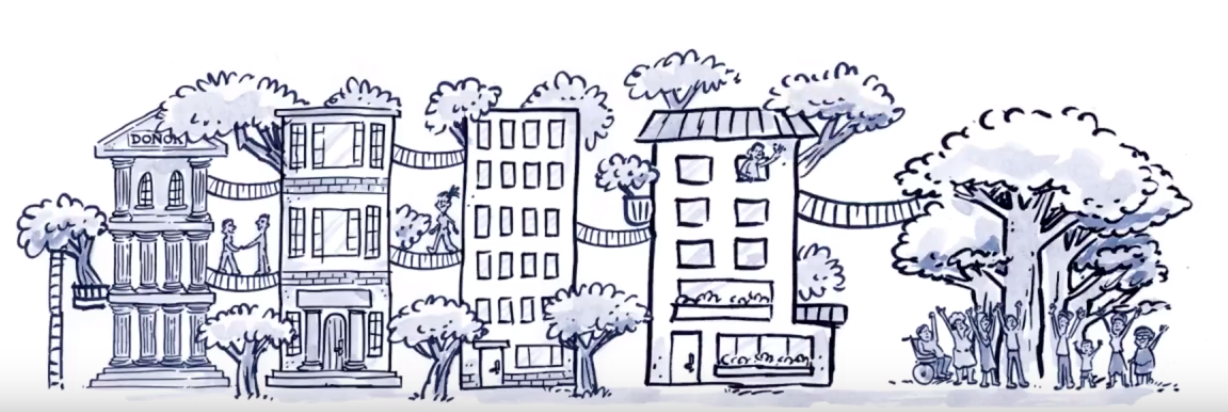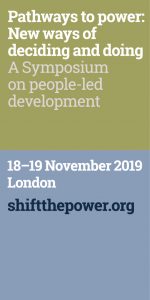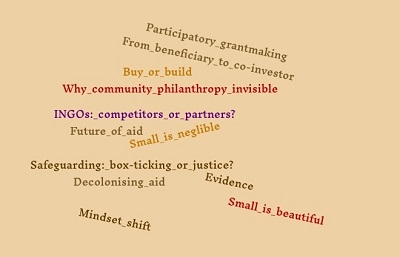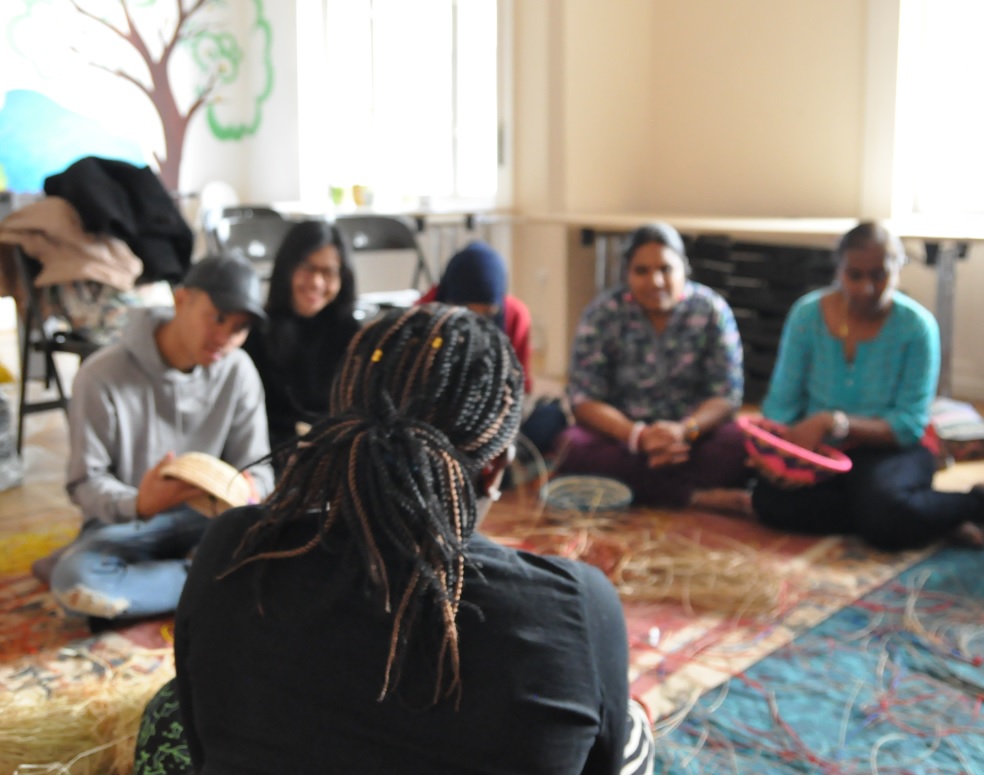Help design the programme for the Pathways to Power Symposium! Send us your ideas by 12 July!
21 Jun 2019

“The best way to predict the future is to create it”
 The Symposium will be a small event (maximum 80 participants) aimed at bringing people together for two days of creative and constructive conversations. It will have three goals:
The Symposium will be a small event (maximum 80 participants) aimed at bringing people together for two days of creative and constructive conversations. It will have three goals:
- To shine a light on, and join up, different strands of emerging practice and organizing from around the world that advance people-led development and shift power.
- To explore new and more effective ways of working at the intersections where bottom-up approaches fueled by “social power” meet top-down, formal institutional processes shaped by rules and resources.
- To develop a common theoretical framework – based on solidarity and movement generosity – to set out clear pathways to power and to guide our next actions.
Read more about the initial planning process here.
Who should attend?
- We’re looking for an “unusual,” global, mix of practitioners, funders and researchers who operate in different parts of the development system and who are up for a different kind of conversation with fellow collaborators whose paths might not normally cross.
- In the spirit of #ShiftThePower, we want those engaged at the cutting edge of new ways of deciding and doing at the community level to be in the majority (a ratio of 60:40).
- We want people to come already “warmed up” and ready to participate. That could mean, between now and November, submitting, co-writing or peer reviewing a research paper, joining an online discussion or webinar, co-designing a session, preparing a lightning talk etc. What this preparation looks like will be up to you: we just want to know that everyone who attends will have committed to engaging in new conversations and in considering new or different ideas outside their normal siloes. In short, we want you to bring your “partly-baked” ideas.
- We want people to be open about new ways of doing things, and to be active in joining up approaches that may at first sight be counter-intuitive, but which challenge narrow practice in helpful ways.
Send us your ideas and suggestions
 We already have a few ideas up our sleeves (including an emphasis on community philanthropy as a form of, and force for, locally-driven development) as a strategy that builds assets, community capacity and voice, but we want to co-create the programme for the Symposium with those who want to be there. Here are some questions that might stimulate your thoughts (but don’t be restricted by them and include others if you wish):
We already have a few ideas up our sleeves (including an emphasis on community philanthropy as a form of, and force for, locally-driven development) as a strategy that builds assets, community capacity and voice, but we want to co-create the programme for the Symposium with those who want to be there. Here are some questions that might stimulate your thoughts (but don’t be restricted by them and include others if you wish):
- What are your burning questions?
- What are some of the “pain points” in the current development system (think shrinking space, #AidToo, public trust, changing nature of aid, etc.) that are forcing us to think and work differently?
- How can we get better at joining up of new forms of citizen-led organizing and asset mobilization as part of a distributed, flatter system for the future?
- What needs to happen to infuse existing systems and structures with new energies and ways of organizing that build on community assets?
- What will it take to shift “buying” outcomes to “building” for the long-term (thanks, Non-Profit Finance Fund)? And how to negotiate the transfer of resources and develop models that foster inclusive ownership?
- What are some of our blind spots that we can help each other overcome?
- What resistance can we expect and how can we overcome it?
- In all of the above, how do we confront and manage the issue of power?
Guidelines for the event

This will not be an ordinary meeting.
- There will be no “show and tell”
- We will be “all in” to:
- Think creatively to find new ways of “deciding and doing”
- Support one another
- Share our power and resources
- Enjoy each other’s company
- Face some difficult issues
- We will commit to coming out with a plan for “movement generosity”
- We will “be the change that we want to see in the world”
Next steps
1. Send us your ideas
- Send us your ideas and proposals by 12 July, in the form of a couple of paragraphs by using the “Get In Touch” form below.
- Be bold – and drill down on the burning question you want to explore.
- Tell us:
- Why you are interested in contributing to the Symposium
- Who else you think you would want to involve (we don’t need names at this point but rather “types” of people and institutions within the development system).
- If you are in a position to fund your participation – or that of others? Limited grant funding for travel will be made available.
2. Registration
Because the event will be small (80 people max), invitations to register for the event will be on the basis of two things:
- The submission of a great, bold and important idea that includes a specific emphasis on power, and clear commitment to doing some “homework” beforehand.
- Selection of specific topics by an Advisory Committee that reflects the diversity and range of perspectives within the development system.
There will be no registration fee but voluntary contributions will be welcome.


Might there be an interest to design a workshop/session on implicit bias? Specifically, a session on how to recognize and move past implicit bias when working with different development stakeholders. The session might help individuals working in development (i.e., nonprofit staff, leaders, and board members; individual and institutional donors; aid agency professionals; etc.) to examine what implicit bias is, how to recognize their own implicit biases, and how to help their respective organizations move past bias towards transformative actions that support a desire to advance equity and inclusion in development. Alternatively, the session could engage participants in thinking about how… Read more »
How do we move from training to building sustainable capability around resource mobilization at community level? In South Africa I believe we can harness the potential of unemployed youth graduates in communities with their skills and technological competencies to work with and support community based organizations who bring understanding of their issues and know what is required to address them. In this regard, how do we access resources offered through youth employment creation agencies and social enterprises to support this and ultimately build a community driven model of resource mobilization and impact .
Currently, I am seeing “localization” and “locally led development” focus on a change of the locus of activity rather than shifting power. For this, and so much more, the Pathways to Power Symposium is crucial. When considering how to shift the power, I believe that one way to do so is to ensure that aid and development programming is done in a collaborative, shared, and flexible way that centers authentic partnership. At the Pathways to Power Symposium, I am particularly interested in contributing to and learning about ways to create systemic shifts and generate movement in the current aid and… Read more »
People move from one country to another for a variety of reasons. They may be in search of social, political, religious, economic or personal freedom, and prosperity, or may be in pursuit of opportunities that maximize business interests. Other times, to seek a more peaceful quality of life as they near retirement. And in recent years, as a consequence of climate change and natural disasters. This movement of people underlies the phenomenon of transnational communities. In the Americas, there is a profound impact on how people across the hemisphere view themselves and each other. Too often migrants are invisible in… Read more »